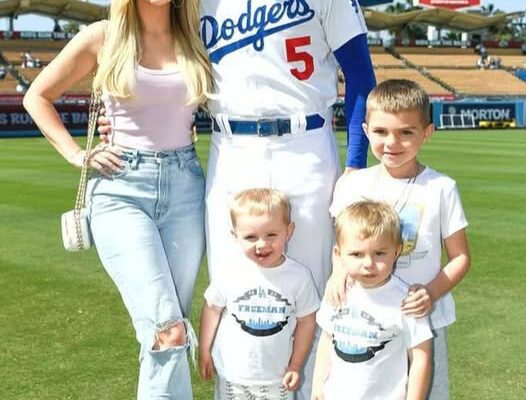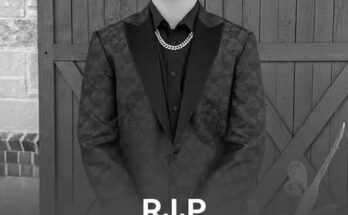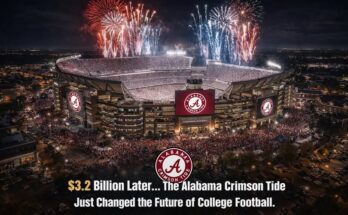In the glittering tapestry of Los Angeles sports, the Dodgers stand out not just for their consistent winning, their star-studded roster, or their iconic ballpark, but for something far less tangible, yet undeniably palpable: a genuinely endearing culture of love, unity, pride, and deep family ties, both on and off the field. This isn’t a PR fabrication; it’s an organic, deeply ingrained ethos that permeates every level of the organization, from the ownership down to the clubhouse, and extends outwards to their vast, diverse fanbase.
The foundation of this unique culture begins with a sense of unity. In a city as sprawling and diverse as Los Angeles, the Dodgers act as a powerful unifying force. Dodger Stadium, affectionately known as “Blue Heaven on Earth,” becomes a melting pot where fans from every walk of life, every neighborhood, and every background come together, united by their shared passion for the team. This sense of collective identity is fostered by the team itself, through initiatives that celebrate the city’s multiculturalism, community events that bring players closer to their fans, and a consistent message of inclusivity. Whether it’s the annual Viva Los Dodgers festival, community health fairs, or youth baseball clinics, the Dodgers actively engage with the fabric of Los Angeles, demonstrating that their commitment extends beyond the ninety feet between bases.
This external unity is mirrored by an incredibly strong on-field camaraderie and genuine affection among the players. Walk into the Dodgers clubhouse, and you won’t find isolated cliques. Instead, you’ll witness a tight-knit group that genuinely enjoys each other’s company. The seasoned veterans, like Freddie Freeman and Mookie Betts, actively mentor the younger players, sharing wisdom and offering support.1 The famous “Dragon Ball Z fusion dance” celebration that became a staple after big hits in past seasons, the playful banter in the dugout, the spontaneous group hugs after clutch plays – these aren’t forced displays; they’re authentic expressions of a shared bond. Even with the arrival of global superstars like Shohei Ohtani and Yoshinobu Yamamoto, the team seamlessly integrates new talent, making them feel like part of the family from day one. Ohtani’s quick assimilation, his evident enjoyment of his teammates’ quirks, and his willingness to participate in their celebrations speak volumes about the welcoming atmosphere.
The sense of pride in wearing the Dodger uniform is evident in every player. It’s a pride rooted in a rich history stretching back to Brooklyn, a legacy of breaking barriers (most famously with Jackie Robinson), and a tradition of excellence. Players often speak of the honor of playing for such a storied franchise and representing a city like Los Angeles. This pride translates into a fierce competitiveness on the field, a refusal to give up, and a relentless pursuit of championships. It’s not just about individual statistics; it’s about contributing to something larger than oneself, about upholding the standard set by generations of Dodgers who came before. The respect for former players, seen in ceremonies and tributes, reinforces this deep sense of historical pride.
Perhaps the most endearing aspect of the Dodgers’ culture is the emphasis on family ties, both literal and figurative. Many players openly share their personal lives and the importance of their own families, often bringing their children and spouses to the ballpark. Watching players interact with their kids on the field during batting practice, or seeing families celebrate together after a big win, humanizes these athletic titans and reinforces the notion that the Dodgers organization values the whole person, not just the player.
The “Dodgers family” extends to the entire organization, from the front office to the coaching staff, the training personnel, and even the stadium employees. There’s a visible cohesion, a shared mission, and a mutual respect that makes it feel less like a corporation and more like an extended family. This internal harmony undoubtedly contributes to the calm and collected demeanor often observed in the dugout, even during high-pressure situations. Manager Dave Roberts often speaks of his players as extensions of his own family, fostering an environment where open communication, trust, and mutual support are paramount.
Beyond the visible displays, the Dodgers demonstrate love through concrete actions. The Los Angeles Dodgers Foundation (LADF) stands as a beacon of their commitment to the community, investing millions annually in initiatives focused on education, health care, homelessness, and social justice. Players are actively involved in these efforts, volunteering their time, participating in events, and using their platforms to raise awareness for various causes. Mookie Betts, Clayton Kershaw, Freddie Freeman – these are just a few examples of players who consistently demonstrate their dedication to giving back, embodying the philanthropic spirit of the organization. Their engagement in community work is not merely an obligation; it appears to be a genuine desire to make a tangible difference in the lives of Angelenos.
Even in moments of challenge or controversy, the underlying current of unity and support within the Dodgers organization shines through. Whether it’s a player battling an injury, facing personal adversity, or even dealing with external criticism, teammates and the organization rally around them. This supportive environment allows players to feel secure and empowered, knowing they have a robust network of colleagues and mentors who genuinely care about their well-being.
In a highly competitive, results-driven professional sports world, the Los Angeles Dodgers manage to maintain a balance that is both rare and admirable. They win championships, attract global superstars, and consistently fill their iconic stadium, but they do so while genuinely cultivating a culture where love, unity, pride, and strong family ties are not just buzzwords, but lived realities. It’s this endearing authenticity, this human element, that truly sets the Dodgers apart, making them not just a team, but a cherished institution in the heart of Los Angeles.



